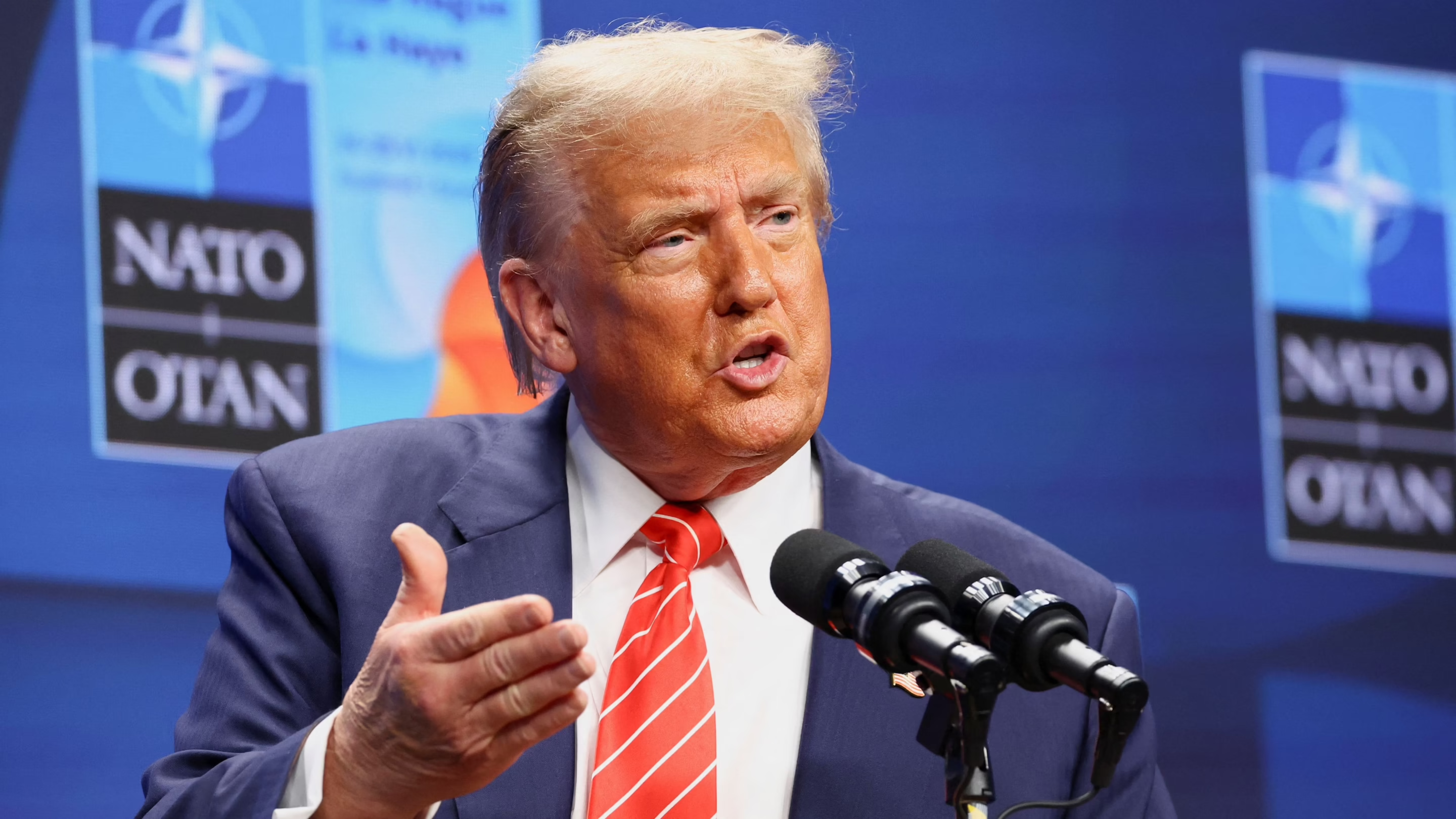Both Donald Trump and his legions of critics in Europe are celebrating the outcome of the latest NATO summit. The centerpiece of NATO’s renewed image of solidarity was an agreement among all Alliance members (except Spain) to boost their annual defense outlays to at least 5 percent of their yearly gross domestic product (GDP). Although NATO officials portrayed this commitment as a purely voluntary step, it appeased Trump’s long-standing demands for greater financial “burden-sharing” within the Alliance.
Hawks on both sides of the Atlantic may cheer this development, but advocates of a genuine “America first” foreign policy for Washington have little reason to celebrate. Indeed, more burden-sharing has a disturbing potential to entangle the United States in a growing array of dangerous quarrels between Europe (especially NATO’s East European members) and Russia. Thus, there could be more Ukraine-style proxy wars in our future.
European leaders apparently were willing to make major concessions to secure America’s continued entanglement in the continent’s security affairs. They even let Trump take his propaganda victory lap following the U.S. attack on Iran’s nuclear facilities, despite continued misgivings in some European capitals about the wisdom of his action. They gave the U.S. leader an even more impressive, albeit implicit, diplomatic victory lap regarding Alliance defense spending. This theme had dominated Washington’s transatlantic agenda during Trump’s first term, when he pressured the allies to fulfill repeated pledges they had made over the years to spend at least 2 percent of GDP on defense. During the 2024 U.S. presidential campaign, his demand escalated to 5 percent – the same figure that NATO summit leaders have now adopted.
Despite any superficial appearances, the outcome of the June 2025 NATO summit was not good for the American people. A meaningful debate in the United States on the future of Washington’s transatlantic policy should not focus on the issue of burden-sharing. America’s principal need is not for more burden-sharing within NATO; our republic needs a strategic divorce from NATO.
Despite hoary propaganda about NATO being an alliance of equals, there was always a yawning gap between that image and the reality of U.S. hegemony. The United States invariably called the shots on Alliance policy regarding security issues that U.S. leaders deemed truly important anywhere in the world.
An especially graphic demonstration of how the transatlantic power relationship worked in practice came during the Cuban Missile crisis during the autumn of 1963. John F. Kennedy’s administration dispatched former ambassador W. Averell Harriman to meet with French President Charles De Gaulle about the alarming situation. Near the end of the session, De Gaulle asked Harriman if he was consulting with him about U.S. policy or “informing” him. Harriman conceded that Washington was merely informing its ally. The United States would make the final decision unilaterally, based on America’s best interests.
One consequence of that confirmation of Washington’s dominance within NATO was that France promptly developed and deployed an independent strategic nuclear deterrent and withdrew from NATO’s military structure, thus asserting an independent role for France.
Thereafter, whenever European NATO members showed signs of even flirting with more independent foreign policy positions or initiatives, Washington firmly discouraged such behavior. There was even an implicit but meaningful limit to France’s maverick conducta situation that became more apparent after De Gaulle’s departure. For example, U.S. officials in the administrations of Bill Clinton and George W. Bush firmly rebuffed French-led proposals to create a separate, Europeans-only defense force within the European Union (EU) to supplement NATO.
U.S. leaders simply expected the European allies to follow Washington’s policy lead with little dissent and even less overt resistance. One consequence was that the U.S. government dragged its European allies into a growing number of highly questionable military adventures, including in Afghanistan and Iraq. Typically, though, such European involvement amounted to little more than tokenism. Both sides thus continued the game of preserving an image of Alliance solidarity.
The principal reason that Washington could dictate NATO policy throughout the Cold War and the initial post-cold war era was that political elites on both sides of the Atlantic viewed the U.S. military shield – especially Washington’s nuclear deterrent – as irreplaceable. Nearly all European leaders and the bulk of European public opinion embraced that view. Despite periodically whining about the lack of burden-sharing, members of the U.S. political elite also were content, if not insistent, on Washington’s continued hegemony in transatlantic relations.
It remains to be seen if the defense spending pledges adopted at the 2025 NATO summit amount to anything more than yet another hollow gesture on the part of the European countries. However, if genuine military burden-sharing does take place, the NATO allies will likely become increasingly resistant to continued U.S. dominance of the Alliance. Indeed, signs of restlessness and balky behavior were becoming apparent even before the 2025 summit.
Such a development could pose serious problems for the United States. Although U.S. and European interests and policy preferences usually align, they are by no means identical. Moreover, the gap regarding some key issues is growing in ways that should worry Americans. Poland, the Baltic republics and NATO’s other East European members are adopting very hostile, hardline policies toward Russia. Those countries have been among the most enthusiastic for boosting military assistance to Ukraine and giving Kyiv membership in the Alliance.
Adding Ukraine to NATO’s East European, anti-Russia bloc would exacerbate the danger of the Alliance becoming a tripwire that entangles the United States in a full-blown war against Russia. Political and military leaders in Ukraine seem determined to pursue their own policies regardless of Washington’s preferences or words of caution. Such rogue behavior became apparent when Ukrainian forces smuggled drones deep inside Russian territory and conducted Operation Spiderweb – attacks on four air bases housing portions of the Kremlin’s strategic bomber fleet.
A stronger, independent European faction within NATO unfortunately increases its potential as a tripwire endangering the United States. Washington should congratulate its NATO allies for finally taking steps to build a credible European military capability. However, American leaders also need to make clear that Europe then must take full responsibility – and assume all the risks – for the continent’s defense. The worst possible combination is for the United States to continue being responsible for Europe’s defense while fellow NATO members could disregard Washington’s wishes and engage in conduct that plunged the United States into an unnecessary war. Yet, ironically, that is the possible fruit of America’s longstanding campaign for greater NATO burden-sharing

































